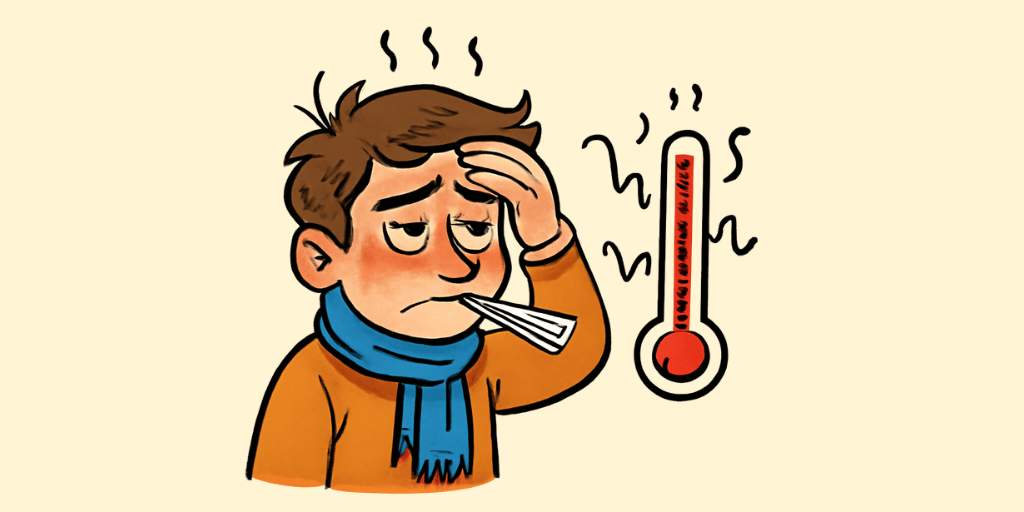Ayurvedic Name: Vishama Jwara
Description:
Vishama Jwara is an irregular and unpredictable fever resulting from chronic digestive disturbances, weak Agni, and Vata Dosha imbalance. It often manifests as fevers with fluctuating intensity and intermittent patterns, resembling malaria or post-viral fatigue syndromes. It is aggravated by erratic eating habits, emotional stress, and excessive exertion, making recovery difficult.
Signs & Symptoms:
- Vishama Jwara (Irregular Fever): Fever spikes that are irregular in their pattern, occurring at unpredictable intervals.
- Sparsha Asahyata (Tenderness to Touch): Sensitivity or pain at the fever site.
- Jwara (Fever): Sudden increase in temperature, with alternating phases of fever and remission.
- Agnimandya (Digestive Impairment): Poor digestion, often with a loss of appetite or nausea.
- Dourbalya (Weakness): Generalized weakness due to fluctuating body temperature.
- Aruchi (Loss of Appetite): Inability to tolerate food during fever episodes.
- Kshamata (Fatigue): Extreme fatigue with each fever episode.
Diagnosis:
Malaria and Typhoid Testing (Peripheral Smear/Widal Test)
Risk Factors:
- Dietary Factors
Excessive consumption of fried, oily, or spicy foods, which can cause digestive disturbances and trigger irregular fever.
Eating foods that are difficult to digest, leading to Ama accumulation and fever. - Lifestyle Factors
Sudden exposure to temperature changes or cold weather can provoke Vishama Jwara or irregular fever patterns.
Stress and emotional disturbances that weaken the immune system, leading to irregular fever. - Medical Conditions
Chronic infections or autoimmune conditions can lead to fever with irregular patterns.
Malaria, tuberculosis, or parasitic infections often cause irregular fever cycles.
Complications:
- Systemic Infections (Sarvanga Dushana): Irregular fever, such as in cases of malaria or typhoid, can lead to widespread organ infection or inflammation.
- Immune System Weakness (Pratirodh Kshaya): Chronic irregular fever can weaken the immune system, making the body more vulnerable to other infections.
- Organ Damage (Karma-Vikriti): If left untreated, irregular fever can damage organs like the liver, kidneys, or brain.
- Sepsis (Raktavaha Dushana): Persistent irregular fever can result from a systemic infection that progresses into sepsis, requiring urgent medical care.
- Cognitive and Behavioral Changes (Buddhi Vikruti): Irregular fever can lead to confusion, hallucinations, or delirium, particularly in older individuals or young children.
Epidemeology:
Often linked to parasitic infections like malaria and tropical diseases.
More common in individuals living in regions endemic to malaria, particularly in sub-Saharan Africa, South Asia, and parts of Central and South America.
Can occur in individuals of any age, with peak incidence in children and young adults.
Approximately 200 million cases of malaria globally, with fever being a primary symptom.

